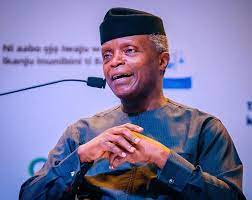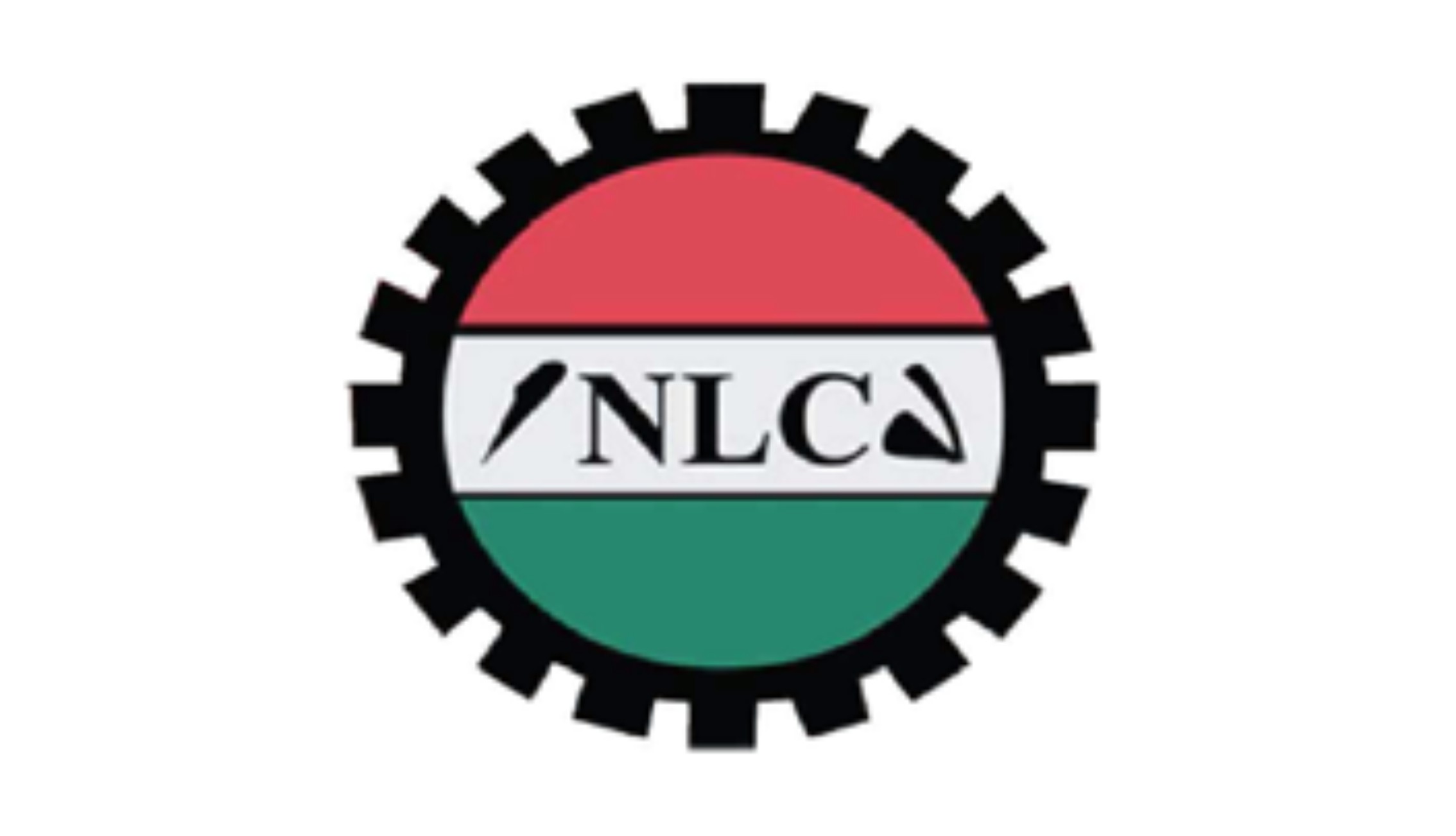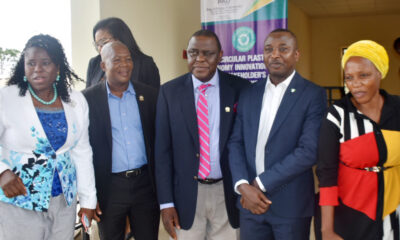Business
Telecom Experts Support FG’s Social Media Tax Plan

Experts in the telecommunication industry have endorsed the move by the Federal Government to tax social media companies in the country.
They said the Federal Government was right in its move because the social media companies generate commercial revenues from the nation.
According to Meta, 7.5 per cent value-added tax will be applied on sales of ads to advertisers from January 2022, and this applies to all non-resident businesses that provide digital service in the nation.
The company’s spokesperson said, “Starting in the New Year, Nigeria will implement a new value-added tax. This law requires all non-resident businesses that provide digital services to charge an additional 7.5 per cent in tax. This includes advertising services like those from Facebook.
“Facebook is required to charge VAT on the sale of ads to advertisers, regardless of whether you’re buying ads for business or personal purposes. All advertisers with a business in the country of Nigeria will be charged an additional 7.5 per cent VAT on advertising services purchased beginning 1 January 2022. As with all VAT, companies like Meta will be collecting this tax on behalf of the Nigerian government”.
The National Coordinator, Alliance for Affordable Internet, Olusola Teniola, noted that the move by the FG was aimed at increasing its revenue through taxes.
He said, “It is all under the auspices of the government trying to increase its revenue. There has been a debate even amongst the OECD countries, as to how they can achieve taxation of digital companies.
“And there has been an agreement that there should be an adopted taxation model. The issue here is that Africa is the weaker partner under the OECD countries. So, when the developed countries that form part of the OECD agreed to tax up to about 15 per cent of revenue generated from their countries, they didn’t consider revenues generated from African countries.
“So, each country is having to devise a method as to how it can estimate the amount of taxation due to them from the transactions made on these platforms. Recently, there has been an agreement that any transaction on these platforms will attract a levy”.
According to Teniola, Nigeria’s approach is very similar to that of Ghana.
He added, “I think Ghana is also placing a levy on not only social media transactions, but on many other such transactions.
“But for us as an industry, we need to find a way to engage the government on a way to cushion the effect on consumers”.
He said since the VAT would naturally be transferred to the consumer, a way to cushion this impact, especially as the increase in digital transactions would continue, had to be adopted too.
The President, National Association of Telecoms Subscribers, Adeolu Ogunbanjo said, “One of the things the Federal Government has said to social media companies is how to tax them. Facebook is being used for adverts, commercially, which calls for some sort of taxes, which of course is one of the duties of this government: to widen the tax net.
“However, because we are using it for advertising, I think this move is only right. And we have been informed by the way. They’ve carried us along – which is one of our rights – that there would be tax and that they are negotiating with the owners of these social media companies. I think it is alright as the Federal Government would have more revenue.
Business
TTP Trains Customs Agents, Freight Forwarders On Eto App
In a concerted effort to tackle racketeering and reduce inflated transportation costs in the Nigeria’s seaports, Trucks Transit Parks Ltd. (TTP) has trained Licensed Customs Agents and Freight Forwarders on the use of its Ètò electronic call-up system.
The training was held recently at Customs Processing Centre (CPC) Auditorium, Apapa, Lagos, in collaboration with the Nigeria Customs Service (NCS) and supported by the leadership of the Joint Association of Licensed Customs Agents and Freight Forwarders (JALCAFF), Apapa Command.
Speaking at the event, Comptroller Babatunde Olomu expressed appreciation to TTP for facilitating the training and emphasized the need for customs agents to take personal ownership of the Ètò booking process.
“I want to thank TTP for this impactful training. I encourage all customs agents to begin doing their own bookings directly. By doing so, they can take back power from the unscrupulous elements exploiting their lack of knowledge, selling tickets at highly inflated prices,” Olomu declared.
He noted that empowering agents with hands-on training was key to dismantling racketeering networks that have plagued access to the ports and frustrated efficient logistics processes.
Also speaking, the Chairman, Apapa Chapter of the Association of Nigerian Licensed Customs Agents (ANLCA), Chief Emeka Chukwumalu, said the engagement was critical to the ongoing push to reduce cargo transportation costs and ease business operations at the Apapa Port.
According to a freight forwarder, “The training is basically for us to have awareness of the operations of the Ètò call-up system through TTP. We also want to brainstorm on ways to reduce the high cost of cargo transportation in Apapa Port.
“This training opened our eyes to how simple it is to book tickets ourselves. We now know the right steps to follow and how to avoid falling victim to fraudsters.”
Earlier, Head of Operations at TTP, Mr. Irabor Akonoman, talked on common misconceptions about ticket pricing, reaffirming that the cost of Ètò bookings had remained consistent since its inception.
“The official price remains the same since inception. What people are paying higher amounts for is the manipulation by racketeers”.
Business
NECA Holds MSME Fair To Drive Growth
Towards strengthening small businesses and promoting a more supportive regulatory environment, the Nigeria Employers’ Consultative Association (NECA) says it will hold the 2025 edition of its flagship MSMEs Fair on Tuesday (May 6, 2025).
The event, themed, “Galvanising MSMEs for Economic Growth and Stability”, will take place at NECA House in Lagos.
According to NECA’s Director-General, Mr Adewale Smatt Oyerinde, the fair seeks to provide micro, small, and medium enterprises with essential tools, resources, and strategic networks to thrive in Nigeria’s challenging business climate.
He emphasised the vital role MSMEs play in national development, describing them as the “lifeblood of Nigeria’s economy.”
Oyerinde noted that the fair is designed to offer entrepreneurs practical solutions to navigate economic uncertainties, regulatory hurdles, and business scalability issues.
A major attraction of this year’s event is the keynote address by the CEO of FATE Foundation, Mrs. Adenike Adeyemi, a prominent advocate for MSME development.
She is expected to share transformative insights on innovative strategies for sustaining and growing small businesses in Nigeria.
A unique feature of the fair will be interactive sessions with key regulatory bodies. Entrepreneurs will engage directly with agencies responsible for licensing, compliance, taxation, and business registration.
NECA said these sessions aim to demystify bureaucratic processes and foster a more enabling business environment.
It also said the fair will provide a platform for entrepreneurs to exhibit their products and services, connect with potential investors, and explore new markets.
It added that participants would gain critical knowledge on digital transformation, access to finance, and strategies for sustainable business growth.
·
· NECA stressed that the fair aligns with its broader mission of promoting enterprise development and economic resilience.
·
· “By empowering MSMEs with the right support and information, the organisation aims to stimulate job creation, innovation, and long-term economic stability”, NECA said.
·
· The 2025 MSMEs Fair is expected to attract a wide range of stakeholders, including financiers, tech experts, regulators, and industry leaders, all united in advancing the growth of Nigeria’s MSME sector.
Business
Over 2m Passengers Board Blue Rail Train – Commissioner
The Lagos State Commissioner for Transport, Mr Oluwaseun Osiyemi, says over two million passengers have been transported on the Blue Line Rail since its launch, while state-run buses move an average of 42,000 commuters daily.
Osiyemi, who disclosed this during the Year 2025 Ministerial press briefing held at the Bagauda Kaltho Press Centre, Alausa, on Tuesday, noted that the Lagos State Transport Policy, launched in May 2024, was now in its implementation phase, focusing on inclusivity, safety, affordability, and sustainability.
“On rail development, Phase One of the Blue Line (Marina to Mile 2) has served over two million passengers, with Phase Two (Mile 2 to Okokomaiko) in progress.
“Phase One of the Red Line (Agbado to Oyingbo) is now operational with eight stations and additional rolling stocks procured, while Phase two (Oyingbo to link Blue Line at National Theatre) is underway”, he said.
The Commissioner said in the state-owned bus operations, over 60 million commuters have been served since 2019, with daily ridership exceeding 40,000.
He also said plans were on to deploy new buses with Quality Bus Corridors under construction, adding that the Abule=Egba Bus Terminal had also been commissioned.
“For water transport, 15 locally-built Omibus Ferries have been launched and are in operation, with the Ijegun Egba Terminal now open.
“The OMI EKO project, in partnership with the French Development Agency (AFD), will deliver 25 terminals and 78 electric ferries.
“Over 280,000 passengers have used ferry services in the past year, and 12 boats have been upgraded to meet safety standards”, he said.
On road infrastructure and traffic management, the Commissioner said 49 junction improvement projects had been completed, including ongoing ones at Ikorodu, Iju, as well as Allen-Opebi-Toyin axis.
He added that solar-powered Traffic Signal Lights, road markings covering 67.9km, new medians, laybys, and 3,941 parking lots had also been provided.
Additionally, Osiyemi announced that the deployed Automatic Number Plate Recognition cameras had detected over 470,000 traffic violations and that the Vehicle Inspection Service issued over one million roadworthiness certificates.
He also said that the Lagos State Drivers’ Institute trained more than 32,000 drivers in the past 13 months.
The event marked the second anniversary of Governor Babajide Sanwo-Olu’s second term, showcasing major strides in the transport sector under the THEMES+ agenda.
Nkpemenyie Mcdominic, Lagos
-
Politics3 days ago
Bayelsa PDP Crisis Deepens As Factional CTC Sacks Party Management Structure
-
Niger Delta3 days ago
Health Professions Not Superior To Others – Bayelsa Dep Gov
-

 Nation3 days ago
Nation3 days agoCBEX Resumes Operations Despite SEC Ban, N1.2trn EFCC Probe
-
Women3 days ago
Justice Prevails Over Osinachi’s Death
-

 Featured2 days ago
Featured2 days agoLabour Unions In Rivers Call For Improved Standard Living For Workers
-
Politics3 days ago
Enugu LP Loses Pub Sec To PDP
-
Niger Delta3 days ago
Diri Recommits To Support For Security Agencies …Cautions AIG, Sacks Youth Exco
-

 Nation3 days ago
Nation3 days agoOgun, Nike Art Gallery Set To Transform Olumo Rock

